source
:>dir /b
disptype.cpp
:>type disptype.cpp
// compile with cl /Zi /W4 /O1 /analyze /nologo disptype.cpp /link /nologo /release
// either disable inlining or compile as debug
// optimisation will blow away stuffstruct function and load rcx,rdx,r8 with argv[]
// and call printf directly
#include <stdio.h>
#include <stdlib.h>
typedef struct _ex
{
char *ptr0;
char *ptr1;
char *ptr2;
} ex;
__declspec(noinline) void stuffstruct (ex *myex,char *a,char *b,char *c) {
myex->ptr0 = a;
myex->ptr1 = b;
myex->ptr2 = c;
return;
}
int main (int argc, char * argv[])
{
if(argc != 4)
{
printf( "usage %s how are you\n" , argv[0]);
exit(0);
}
ex myex;
stuffstruct(&myex,argv[1],argv[2],argv[3]);
printf ("%s repeats 3 argv's \n%s\n%s\n%s\n",argv[0],myex.ptr0,myex.ptr1,myex.ptr2);
return 0;
}
compile and link and use
:>cl /Zi /W4 /O1 /analyze /nologo disptype.cpp /link /nologo /release
disptype.cpp
:>disptype.exe
usage disptype.exe how are you
:>disptype.exe how are you
disptype.exe repeats 3 argv's
how
are
you
:>
windbg (using cdb for ease of copy paste )
:>cdb disptype.exe how are you
Microsoft (R) Windows Debugger Version 10.0.17763.132 AMD64
$$ go to the relevent function
0:000> g disptype!stuffstruct
disptype!stuffstruct:
00007ff6`3f541000 488911 mov qword ptr [rcx],rdx ds:00000044`02cffe60=000000000000001f
$$ run until return so our struct is initialised
0:000> pt
disptype!stuffstruct+0xb:
00007ff6`3f54100b c3 ret
if you have src / private pdb you can look at locals using dv
0:000> dv
myex = 0x00000044`02cffe60
a = 0x0000019c`437f65b5 "how"
b = 0x0000019c`437f65b9 "are"
c = 0x0000019c`437f65bd "you"
an example of c++ expression evaluator,dt and dx usage
0:000> ?? myex
struct _ex * 0x00000044`02cffe60
+0x000 ptr0 : 0x0000019c`437f65b5 "how"
+0x008 ptr1 : 0x0000019c`437f65b9 "are"
+0x010 ptr2 : 0x0000019c`437f65bd "you"
you can also ask windbg to display type and coerce pointer
either with dt or the new dx
0:000> dt /v disptype!myex
Local var [AddrFlags c8 AddrOff 0000000000000000 Reg/Val rcx (3)] @ rcx Type _ex*
disptype!myex = 4402cffe60
struct _ex, 3 elements, 0x18 bytes
+0x000 ptr0 : 0x0000019c`437f65b5 "how"
+0x008 ptr1 : 0x0000019c`437f65b9 "are"
+0x010 ptr2 : 0x0000019c`437f65bd "you"
0:000> dx (disptype!_ex *) @rcx
(disptype!_ex *) @rcx : 0x4402cffe60 [Type: _ex *]
[+0x000] ptr0 : 0x19c437f65b5 : "how" [Type: char *]
[+0x008] ptr1 : 0x19c437f65b9 : "are" [Type: char *]
[+0x010] ptr2 : 0x19c437f65bd : "you" [Type: char *]
0:000>
coercing an address to be interpreted as our struc
0:000> dx (disptype!_ex *) @rax
(disptype!_ex *) @rax : 0x19c437ff290 [Type: _ex *]
[+0x000] ptr0 : 0x19c437f6880 : "ALLUSERSPROFILE=C:\ProgramData" [Type: char *]
[+0x008] ptr1 : 0x19c437f5dc0 : "APPDATA=C:\Users\xxxx\AppData\Roaming" [Type: char *]
[+0x010] ptr2 : 0x19c437f5e20 : "CommandPromptType=Native" [Type: char *]
0:000>
you are talking about memory window in gui (atl +5 )
that window cannot show types it can only show data as predefined type like
bit , byte , word, dword, float , double,string etc
set up either locals or watches (in my humble opinion both are cumbersome use up real estate degrade performance blah blah but that is my opinion you can happily use them if you so wish )
here is screen shot

